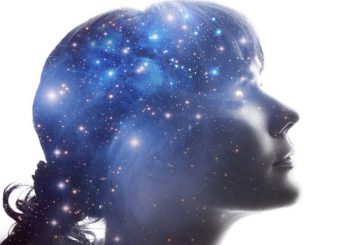By Paul Lenda
Staff Writer for Wake Up World
What causes suffering? You could say it’s desire, attachment, and fear, and you would be right. However, other states of consciousness also lead to profound levels of suffering that could be avoided with a consciousness shift.
Siddhartha Gautama, aka Buddha, taught much when it comes to suffering. In the Dhammapada, which is a collection of Buddha’s aphorisms, there are four specific states of consciousness he calls out as leading to immense suffering.
Let’s go over these four and see how we can overcome falling prey to them.
“There is no fire like lust.”
In Buddhism, fire is sometimes seen in a harmful context. While it has the ability to purify, it can also burn.
Lust is the expression of overactive and imbalanced sacral energy. When energy is not brought up the central channel throughout the rest of the energy body, it gets stuck in the sacral, growing so great that it leads to lust, a form of desire. This lust can lead to actions that can cause immense suffering for both the person experiencing the lust, as well as others who are the target of that lust.
Lust can arise in anyone but it can be fleeting and be treated like a transitory event, without focusing on it and making it grow. Watch your feelings of lust arise and notice that you previously did not experience this state of consciousness, while also realizing that there will come a time when you will no longer experience it as well. Allow it to flow through you while you close your eyes and take nice long, deep breaths. Allow this pranic inflow and outflow to be gentle.
If you find that lust consciousness is being a bit persistent, you can also bring the Breath of Fire into the mix. Pump your navel axis point of your energy system in and out at least 108 times, or however long you feel you need. Then, breathe in and pull the root center (perineum) lock, holding your breath for 4-8 seconds. Allow yourself to bring the energy up the central channel out of the sacral and into your solar plexus center (and higher if you can manage).
“There is no grip like hatred.”
Hate stems from anger and feeling that you were wronged. Buddha calls this one of the Three Poisons, and can also be considered to include anger based on how he described it.
Hatred and anger will burn you more than they will anyone else. It’s essentially self-sabotage. However, people who you direct your anger to can also suffer, be it mental, physical, or emotional suffering, especially if you act on those states of consciousness with your words and actions. It is hatred that has led to much of the enslavement we have seen of humans, both on an individual and collective level, in the past and present through various means.
An effective hatred and anger reduction practice is Sheetali Pranayama, or Cooling Breath. To practice this technique, breathe in slowly and feel cool air coming into your mouth through a tongue that is rolled up on the sides, creating a tunnel of sorts. Feel this cooling breath filling your solar plexus center where it meets your three main energy channels. As you breathe out, feel the energy going up through your chest and up your throat. As you are breathing in using your mouth, tilt your head up toward the sky or ceiling. When you exhale, drop your chin while exhaling through your nose.
After around 21 times, you should feel the hatred and anger have dissolved. Do this practice in the morning and just before going to bed, as well as whenever you are feeling hatred consciousness flaring up.
“There is no net like delusion.”
What is stopping you from being happy right now? It’s probably some form of delusion. What this means is that you are not seeing Life and Reality as it is, within this present moment, and placing it into a macrocosmic perspective. Simply put, delusion distorts Reality.
Buddha saw delusion as anything that shifts us out of peace and leads to someone or something else controlling our minds. All delusions are illusions that are given life due to feeding them attention. It’s almost akin to an individual version of an egregore, or our own self-created wetiko. Delusions distort how we see ourselves, others, and reality. It’s essentially like a funhouse mirror that is distorted and so it reflects a distortion back to us.
Delusion is a net unlike any other. There is the First Net that most people have gotten trapped in, which is what we today call being Basic. Then, there is a Second Net that is even more dangerous than the first. We find people like the Woke and Spiritual Narcissists in this one, among others. There is even a Third Net that, albeit rare, which leads to apathetic nihilism after escaping the first two nets yet falling into this last potential one.
Getting out of the nets of delusion is one of the most difficult undertakings because it means your ego has become so entrenched as the controller of your being that it’s taken several precautions to make sure it’s not put in its rightful place as a servant rather than a master. However, there are steps you can take to free yourself from delusion.
A key step is to affirm that you don’t have all of the answers to life and existential Reality, or any of its trillions of aspects. You can tell yourself that you should keep an open mind that is fluid and flexible like water and bamboo, always open to changing no matter what. Rather than experiencing cognitive dissonance, you will entertain new information that contradicts thought-forms that have become imprinted into a belief system matrix within your mind.
You can also surrender to the ineffable Tao of Life as having it all figured out so you don’t have to put undue pressure on yourself to know a certain something, be a certain way, or do a specific action.
“There is no river like craving.”
Craving is another word for desire. There is no end to craving. You will keep wanting more. If you get what you want, you will probably find satisfaction is fleeting. You will crave more and more. If you don’t get what you want, you will likely find yourself incredibly attached to it if you crave it, and it will be apparent because you will either be mad or sad when you don’t get it. Attachment to desires is the root of most suffering, if not all suffering.
Practicing gratitude regularly will help you avoid craving and the suffering that comes with it. Without gratitude for what you have, you will find it takes the pressure off of whatever your object of desire is, be it a person, place, thing, or experience.
Practicing less attachment will also help you minimize cravings. While you can still wield the Law of Attraction to help you manifest various things and experiences in your life, you won’t be sad or mad when you don’t get them. Instead, you will reframe the situation and shift your thoughts to the positive end by seeing whatever it was that you didn’t get being something that wasn’t for your highest good. You will actually be grateful you didn’t get what you craved! And gratitude will lead to you elevating your consciousness and allowing in more of what will serve your highest good.
Now that you know about the four states of consciousness that lead to immense suffering, you can make some adjustments in your state of mind to avoid the common pitfalls that many succumb to. This will help you lead a much more exuberant life.
Recommended articles by Paul Lenda:
- How We Can Accelerate a New Conscious Paradigm
- How to Unlock the Greatness Already Within You
- Yerba Mate: The Ethical and Healthier Alternative to Coffee
- Overcome Victim Consciousness with One Simple Change
- There is Always a Reason to Smile
- The Dangers of Boredom
- The Benefits of Free Range Play for Children
- It’s Time to Stop Playing the What If Game
- The Old World is Falling Away and Making Way for a New One
- 3 Essential Truths Most People Forget
About the author:
 Paul Lenda is a conscious evolution guide, founder & director of SHIFT, author, writer, speaker, meditation teacher, life coach, and ambassador for the New Paradigm wishing to provide an integral role in personal transformation and the collective social transformation of humanity. Paul offers private one-on-one holistic life counseling & conscious evolution sessions, via Skype or phone. Paul takes into account all aspects of the hyperdimensional matrix when providing guidance, counseling, and coaching.
Paul Lenda is a conscious evolution guide, founder & director of SHIFT, author, writer, speaker, meditation teacher, life coach, and ambassador for the New Paradigm wishing to provide an integral role in personal transformation and the collective social transformation of humanity. Paul offers private one-on-one holistic life counseling & conscious evolution sessions, via Skype or phone. Paul takes into account all aspects of the hyperdimensional matrix when providing guidance, counseling, and coaching.
You can connect with Paul via:
- Website: https://evolvingmandala.com/
- Instagram: https://www.instagram.com/evolvingmandala/

If you've ever found value in our articles, we'd greatly appreciate your support by purchasing Mindful Meditation Techniques for Kids - A Practical Guide for Adults to Empower Kids with the Gift of Inner Peace and Resilience for Life.
In the spirit of mindfulness, we encourage you to choose the paperback version. Delve into its pages away from screen glare and notifications, allowing yourself to fully immerse in the transformative practices within. The physical book enriches the learning process and serves as a tangible commitment to mindfulness, easily shared among family and friends.
Over the past few years, Wake Up World has faced significant online censorship, impacting our financial ability to stay online. Instead of soliciting donations, we're exploring win-win solutions with our readers to remain financially viable. Moving into book publishing, we hope to secure ongoing funds to continue our mission. With over 8,500 articles published in the past 13 years, we are committed to keeping our content free and accessible to everyone, without resorting to a paywall.







